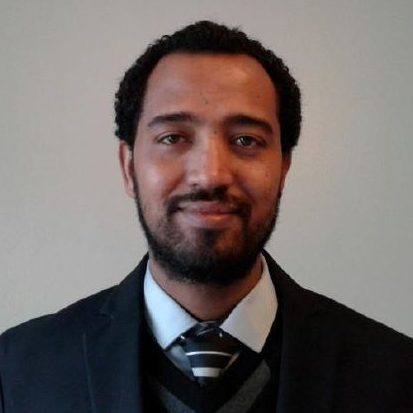faculty
September 19, 2022
Ashenafi Cherkos accepts faculty position at University of North Texas
 Congratulations to Ashenafi Cherkos, PhD Candidate in the Department of Epidemiology and Global WACh student trainee, who accepted a tenure track Assistant Professor position in the Department of Biostatistics and Epidemiology at the University of North Texas Health Science Center at Fort Worth, Texas. (more…)
Congratulations to Ashenafi Cherkos, PhD Candidate in the Department of Epidemiology and Global WACh student trainee, who accepted a tenure track Assistant Professor position in the Department of Biostatistics and Epidemiology at the University of North Texas Health Science Center at Fort Worth, Texas. (more…)
June 16, 2021
Global WACh welcomes new Implementation Science faculty hires
Categories: faculty
We are thrilled to officially announce our new faculty in Implementation Science! These outstanding candidates from our faculty search in Fall 2020 bring valuable skills, research and training experience, and talents to positively contribute to advance our Center’s mission to make scientific discoveries, cultivate leaders, and bridge disciplines to advance the tightly connected health and well-being of women, adolescents, and children. They will lead and grow the footprint of implementation science within our Center and we are eager to collaborate with them on current and future research and training endeavors.
May 20, 2015
Global WACh In Focus: Patricia Pavlinac
Tags: WACh faculty
 Patricia Pavlinac, PhD, was trained in epidemiology and began working within the Department of Global Health on tuberculosis-related research projects in January 2010. Through coordinating a diarrheal and febrile illness surveillance study for Judd Walson, she developed a dissertation to determine the potential etiologies of acute diarrhea among Kenyan children, to determine how these etiologies associate with HIV-infection and HIV-exposure, and to evaluate the appropriateness of current international diarrhea management guidelines in correctly indicating antibiotics. She found that specific enteric pathogens, namely enteropathogenic Escherichia coli (EPEC) and Cryptosporidium are associated with HIV-infection and HIV-exposure, respectively, a finding that builds upon recent evidence that these two pathogens are independently associated with mortality in children with diarrhea. Additionally, she found that the indications for antibiotic use in current World Health Organization management guidelines miss most treatable bacteria. To give a bit of context to her research, over 3% of children under 5 years of age who present to a Western Kenya health facility with a moderate to severe form of diarrhea will die within the subsequent 60-days, despite receiving oral rehydration solution and zinc, a risk of death 5-times higher than a healthy similarly aged child living in the same community. This knowledge, combined with her research in understanding the role of host and management factors in diarrheal disease consequences, have inspired her to focus her career on pediatric diarrheal disease in sub-Saharan Africa.
Patricia Pavlinac, PhD, was trained in epidemiology and began working within the Department of Global Health on tuberculosis-related research projects in January 2010. Through coordinating a diarrheal and febrile illness surveillance study for Judd Walson, she developed a dissertation to determine the potential etiologies of acute diarrhea among Kenyan children, to determine how these etiologies associate with HIV-infection and HIV-exposure, and to evaluate the appropriateness of current international diarrhea management guidelines in correctly indicating antibiotics. She found that specific enteric pathogens, namely enteropathogenic Escherichia coli (EPEC) and Cryptosporidium are associated with HIV-infection and HIV-exposure, respectively, a finding that builds upon recent evidence that these two pathogens are independently associated with mortality in children with diarrhea. Additionally, she found that the indications for antibiotic use in current World Health Organization management guidelines miss most treatable bacteria. To give a bit of context to her research, over 3% of children under 5 years of age who present to a Western Kenya health facility with a moderate to severe form of diarrhea will die within the subsequent 60-days, despite receiving oral rehydration solution and zinc, a risk of death 5-times higher than a healthy similarly aged child living in the same community. This knowledge, combined with her research in understanding the role of host and management factors in diarrheal disease consequences, have inspired her to focus her career on pediatric diarrheal disease in sub-Saharan Africa.
Patricia is passionate about developing evidence for the management of diarrheal illness in pediatric populations. She is conducting an evidence review of diarrhea management strategies for pediatric populations in resource-limited settings, an endeavor commissioned by the Bill & Melinda Gates Foundation and presented at the World Health Organization in October 2014. The most rewarding thing about this area of work, she says, is that there is a huge renewed interest in diarrheal disease in the global research community. This priority settings comes at the heels of the recently published Global Enteric Multicenter Study (GEMS), which highlighted the continued risk of death associated with diarrheal illness and challenged existing thinking about the major causes of diarrheal disease in sub-Saharan Africa and Asia.
It feels exciting and I feel really lucky to have found this field at this stage.
Patricia is especially interested in the consequences of diarrhea that extend beyond the acute period. Research is showing that even though a child may survive the acute consequences of diarrhea, namely dehydration, many go on to die soon after. She is hoping to design interventions that target this post-acute diarrhea phase and prevent the downward health spiral that occurs after a significant episode of diarrhea.
Patricia is confident in the possibility of a real impact, and there are funders, researchers, and institutions that are coming together to support these efforts. We are excited to have such a dynamic and passionate researcher in the Global WACh family!
